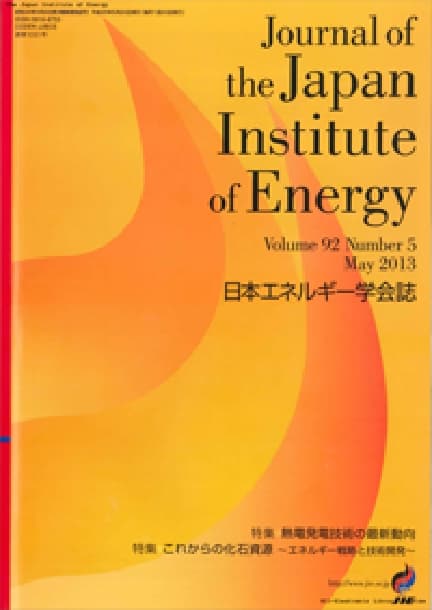Evaluation of Thermal Stimulation Method using Deep Geothermal Heat in Methane Hydrate Deposits
Hikari FUJII, Yusuke WASAKI, Ryuichi ITOI
pp. 199-207
DOI:
10.3775/jie.87.199Abstract
Thermal stimulation method is one of the prospective methods for gas production from methane hydrate (MH) deposits. In the thermal stimulation method, MH is dissolved to methane gas and water either by injecting heated water into the MH deposits or by circulating heated water in production wells. In this paper, the feasibility of heated water injection using the ground heat in the deep formation was investigated with numerical simulations. A co-axial ground heat exchanger (GHE) is designed to be drilled below MH deposits to produce the heated water. Numerical simulations showed that a GHE of 2000m deep can extract a geothermal heat over 200kW. On the basis of the estimated heat supply, numerical reservoir simulations were carried out to optimize the strategy of water injection in terms of gas production rates. The simulations showed that water injection should be commenced after a gas production with depressurization for 3 years since the timing maximized the cumulative gas recovery; the optimum injection rate was estimated 250L/min. The use of seawater as water source was also examined to demonstrate that the inhibitor effect of seawater, which lowers the dissociation temperature of MH, can accelerate the dissolution of MH. Assuming a production life of 20 years, the cumulative gas production, when using a GHE of 2000m deep and seawater as water source, was estimated 48.9% larger than the cumulative gas production without heated water injection.
Readers Who Read This Article Also Read
Journal of the Japan Institute of Energy Vol.87(2008), No.3
Journal of the Japan Institute of Energy Vol.87(2008), No.9
Journal of the Japan Institute of Energy Vol.88(2009), No.2










